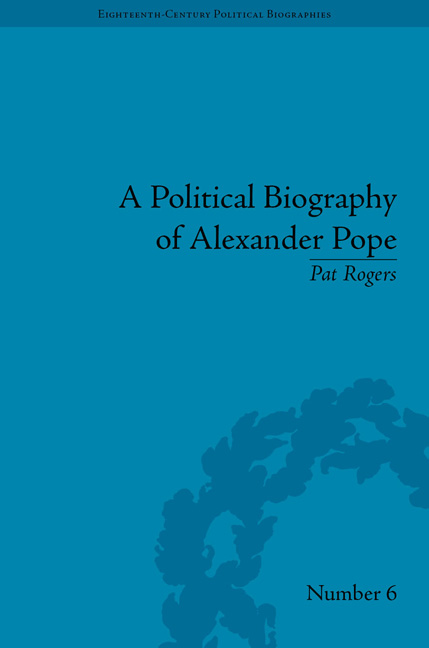Book contents
- Frontmatter
- CONTENTS
- Dedication
- Acknowledgements
- Abbreviations
- Dates and Quotations
- Sources
- Introduction
- Part I William and Anne, 1688–1714
- Part II George I, 1714–27
- 4 Civil and Religious Rage
- 5 Toil, Trouble, South Sea Bubble
- 6 A Dull Duty and a Public Cause
- Part III George II, 1727–44
- Epilogue: After Walpole
- Notes
- Works Cited
- Index
4 - Civil and Religious Rage
from Part II - George I, 1714–27
- Frontmatter
- CONTENTS
- Dedication
- Acknowledgements
- Abbreviations
- Dates and Quotations
- Sources
- Introduction
- Part I William and Anne, 1688–1714
- Part II George I, 1714–27
- 4 Civil and Religious Rage
- 5 Toil, Trouble, South Sea Bubble
- 6 A Dull Duty and a Public Cause
- Part III George II, 1727–44
- Epilogue: After Walpole
- Notes
- Works Cited
- Index
Summary
Born to no Pride, inheriting no Strife,
Nor marrying Discord in a Noble Wife,
Stranger to Civil and Religious Rage,
The good Man walk'd innoxious thro’ his Age.
Epistle to Arbuthnot (TE, vol. 4, p. 126)At first it looked as if the Hanoverians had taken over at the cost of scarcely anything by way of blood, sweat or tears. With remarkably little fuss they had dislodged the Stuart family, who with one brief interregnum had occupied the British throne for more than a century. Of course many people saw the change in a different light – especially in Scotland, where Stuarts (or Stewarts) had reigned since the 1300s. A few riots broke out across the entire country, but nothing on the scale of the protests that had followed the trial of Sacheverell. In earlier centuries, from Saxon times onwards, it had needed civil war, invasion or outright murder to topple a dynasty, and so the legendary importance of battles such as Hastings, Bosworth or Marston Moor. Now in 1714 George I succeeded Anne without any effective resistance in the political class. One tale has it that the High Church Bishop Francis Atterbury (later to become a close friend of Pope) offered to go to Charing Cross in full episcopal regalia, with the intent of proclaiming the Pretender, but most scholars today discount this story. A reputed cabinet in waiting with Sir William Wyndham and other known Jacobites among its number turned overnight into a creation of pure fantasy, about as close to real life as the court of Ruritania.
1
For Oxford's government and its supporters, the sudden transformation took on an aspect both tragic and surreal. ‘The Earl of Oxford was remov'd on tuesday, the Queen dyed on sunday’, Bolingbroke informed Swift, who was still hiding away in Berkshire. ‘What a world is this, and how does fortune banter us?’ As we have seen in the previous chapter, Pope was by now on intimate terms with the upper crust of the Tory party.
- Type
- Chapter
- Information
- A Political Biography of Alexander Pope , pp. 77 - 102Publisher: Pickering & ChattoFirst published in: 2014



